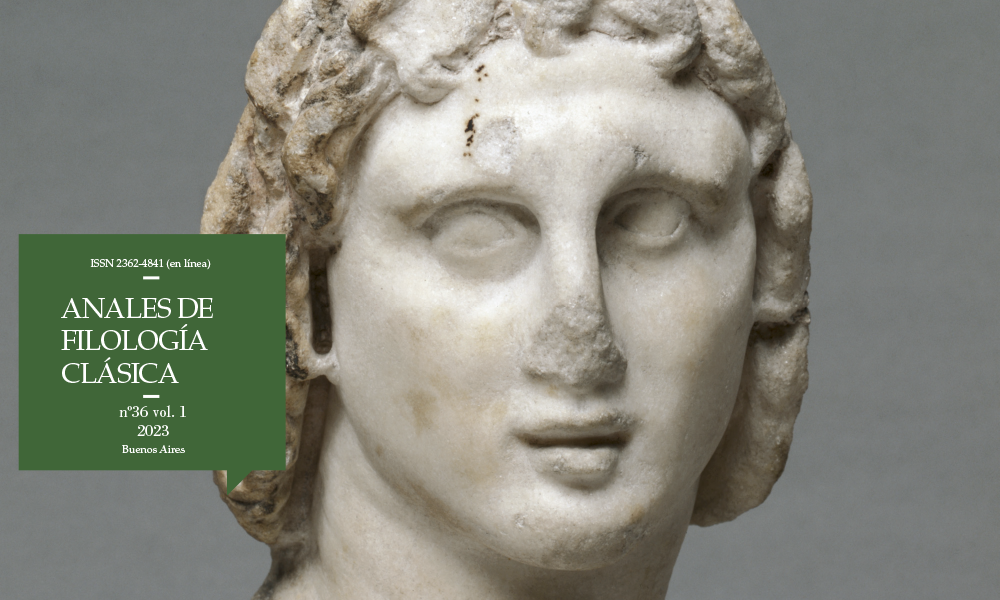“Destroyers of one another”: Narrative Strategies in Oppian, Halieutica 2.253-421
Keywords:
Oppian, Halieutica, octopus, lobster, moray eel
Abstract
The aim of this paper is to analyse one of the most recognised passages of the Halieutica of Oppianus of Cilicia, the fight between the moray eel, the lobster and the octopus, in order to identify the author's narrative strategies and their function in the passage. After a general introduction to the poem and to the theme of the encounter between these animals, I will explore, first, the larger structure of the episode, specifically the organisation of the events that compose it, and, second, I will study the descriptions of the actual fights between the moray eel, the lobster and the octopus.Downloads
Download data is not yet available.
Published
2023-12-22
How to Cite
Abritta, A. (2023). “Destroyers of one another”: Narrative Strategies in Oppian, Halieutica 2.253-421. Anales De Filología Clásica, 1(36). https://doi.org/10.34096/afc.i36.13850
Issue
Section
Artículos
Copyright (c) 2023 Alejandro Abritta

This work is licensed under a Creative Commons Attribution-ShareAlike 4.0 International License.
Los autores/as que publiquen en esta revista aceptan las siguientes condiciones:
- Los autores/as conservan los derechos de autor y ceden a la revista el derecho de la primera publicación, con el trabajo registrado con la licencia de Atribución-CompartirIgual 4.0 Internacional (CC-BY-SA 4.0) de Creative Commons, que permite el uso comercial de la obra y de las posibles obras derivadas, la distribución de las cuales se debe hacer con una licencia igual a la que regula la obra original.
- Los autores/as pueden realizar otros acuerdos contractuales independientes y adicionales para la distribución no exclusiva de la versión del artículo publicado en esta revista (p. ej., incluirlo en un repositorio institucional o publicarlo en un libro) siempre que indiquen claramente que el trabajo se publicó por primera vez en esta revista.
- Se permite y recomienda a los autores/as a publicar su trabajo en Internet (por ejemplo en páginas institucionales o personales) antes y durante el proceso de revisión y publicación, ya que puede conducir a intercambios productivos y a una mayor y más rápida difusión del trabajo publicado (vea The Effect of Open Access).
En ningún momento se cobrará monto alguno al autor por la publicación en esta revista.







